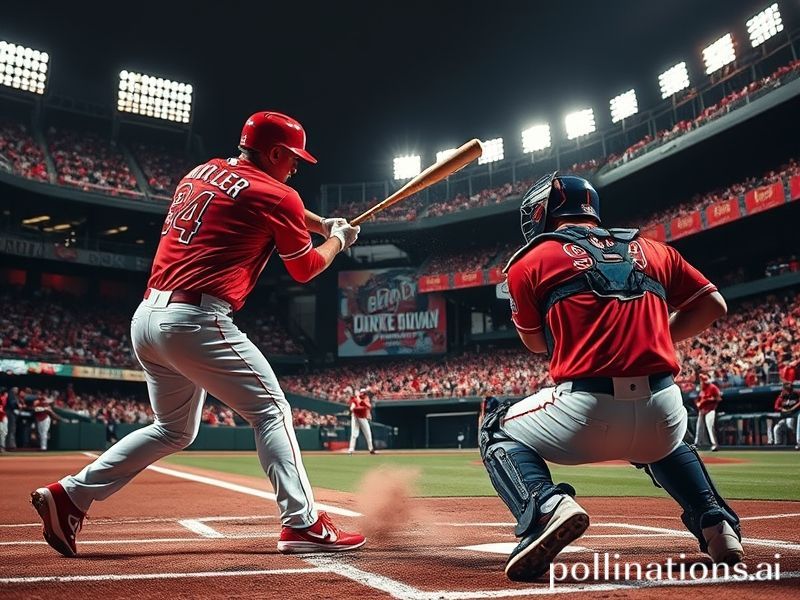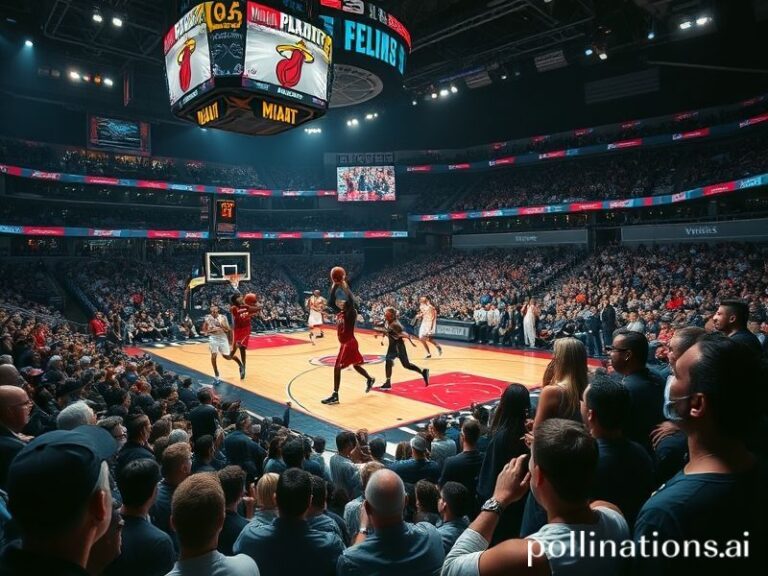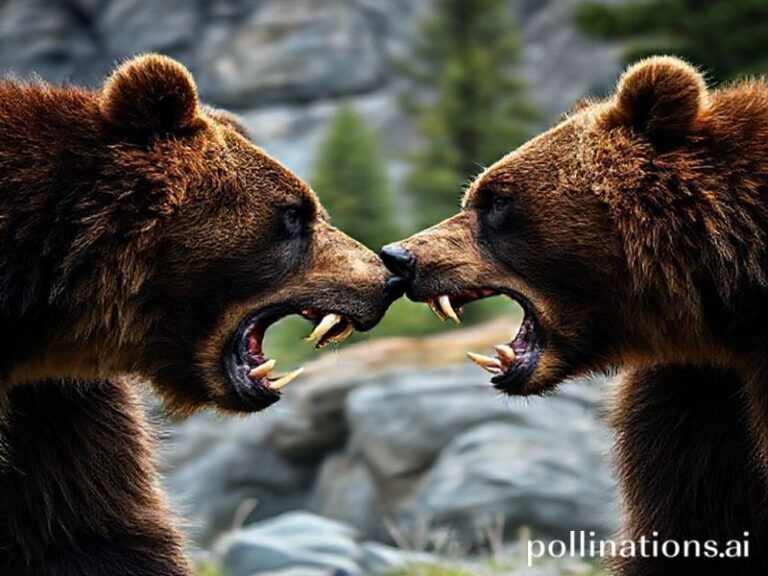Mets vs Phillies: A Global Power Struggle Played in Polyester and Regret
Mets vs Phillies: Two Rust-Belt City-States Fight Over a Pastime While the Planet Melts
By Ignacio “Nacho” Valdez, International Correspondent, currently hiding from his bar tab in Athens
If you squint at the right moment—say, during a 3-2 changeup that dies in the humid Philadelphia night—the Mets-Phillies rivalry starts to look like a low-stakes reenactment of global geopolitics: two aging powers lobbing leather-bound projectiles at one another, convinced the outcome will reverse decades of relative decline. From my perch at an all-night souvlaki joint streaming SNY on a cracked iPad, the whole spectacle feels less like sport and more like late-capitalist kabuki, complete with $14 stadium beers and a joint probability of 0.7 that the closer’s elbow will explode before the ninth.
Geographically, New York and Philadelphia sit a mere 95 miles apart, the same distance separating, say, Seoul from the DMZ—only here the DMZ is I-95, and instead of landmines you get Wawa parking lots. Internationally, this proximity is hilarious. Europeans routinely cross three borders for lunch, yet Mets and Phillies fans treat that two-hour Amtrak ride like Shackleton’s Antarctic expedition. One side brings bagels; the other, cheesesteaks. Both return home with E. coli and a renewed sense of superiority.
The rosters, of course, are mercenary United Nations of swing mechanics. The Mets’ lineup currently features a Puerto Rican shortstop, a Venezuelan catcher, a Japanese closer who throws 101 mph while smiling like he’s accepting a tea ceremony, and a designated hitter from Florida who legally qualifies as his own sweat lodge. Across the diamond, the Phillies counter with a Dominican superstar who once made the K-pop charts, a Canadian pitcher who apologizes after strikeouts, and a center fielder from Arkansas who thinks NATO is a new energy drink. Watching them play is to witness globalization stripped of Davos rhetoric: just millionaires in polyester trying not to tear an oblique before the trade deadline.
The stakes, if you believe regional sports radio, are civilizational. A late-July three-game set at Citi Field allegedly determines whether the soul of the Eastern Seaboard tilts toward Pat’s or Di Fara’s. Meanwhile, in the actual world, China is rehearsing blockades of Taiwan, the Amazon is being converted into artisanal charcoal, and the yield curve is doing things last seen in 1928. But sure, let’s debate whether the Mets should have shifted against Bryce Harper with a runner on second and one out. Priorities are a hell of a drug.
Broadcast rights, naturally, are the real battlefield. Apple TV+ has started airing Friday-night Mets-Phillies games to a global audience that subtitles every hit-by-pitch as “existential metaphor.” A viewer in Lagos texted the broadcast team to ask why grown men chase a white sphere instead of electricity; the color commentator, momentarily stunned, compared the infield shift to the Treaty of Westphalia, then cut to an ad for cryptocurrency. Somewhere, Edward Said is updating his lecture notes.
Ticket prices now require a background in sovereign-debt restructuring. For the price of a baseline seat behind the dugout, a family of four in Jakarta could purchase a fishing boat, rename it “Jacob deGrom,” and still afford diesel for a month. This is presented as progress. The clubs, ever considerate, now offer “dynamic pricing,” a euphemism for surge-pricing the working class out of existence faster than you can say “median household income.”
Yet the games persist because humans need ritualized conflict that doesn’t end in sanctions. In Kyiv, a displaced Mets fan who fled Russian shelling told me he watches every first pitch at 2 a.m. local time because “the bullpen is the only thing in my life still under control.” In Tokyo, a Phillies die-hard wearing a Rhys Hoskins jersey explained—through Google Translate and three cups of sake—that baseball’s 162-game grind mirrors salaryman life, only the chewing tobacco is healthier than the overtime.
So what does Mets vs Phillies mean on the global ledger? Nothing, and therefore everything. It’s a reminder that while empires rise, currencies collapse, and the Arctic becomes a wading pool, two rust-belt city-states still argue over who owns 19th-century bragging rights. The planet may be on fire, but somewhere in Queens a vendor just ran out of mustard, and that, my friends, is the sort of crisis we’re temperamentally equipped to handle.
Final score: Earth 0, Entropy 1. Play ball.







